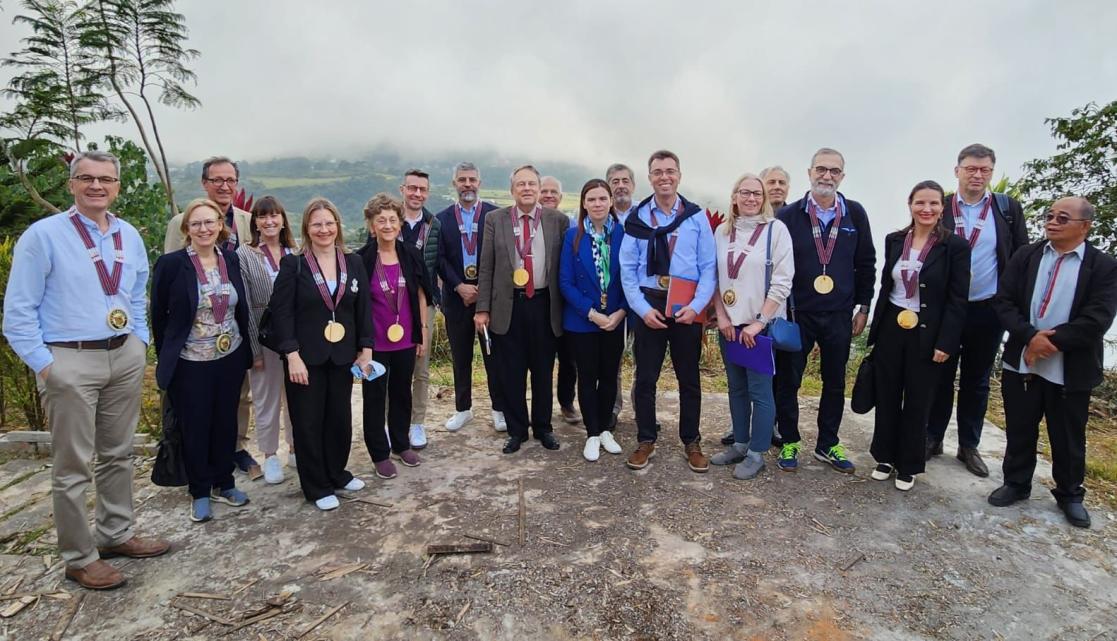EU and EU Member States’ Ambassadors visit Baguio City
During their visit, on January 27-29, the Ambassadors met with local government officials led by Baguio City Mayor Benjamin Magalong, civil society representatives, academe and the press. They also visited EU funded-projects on green economy, justice coordination and children’s rights, as well as Baguio City’s Disaster Risk Reduction and Management Office (CDRRMO) Command Center, the Quezon Elementary Library HOB (Hooked on Books), and the Mansion House.
EU Ambassador Massimo Santoro said that: “We are pleased to visit Baguio City jointly for the first time. We like to thank the Baguio City government as well as the officials and representatives from government agencies, NGOs, civil society organisations and the press, for the very warm welcome. We also like to acknowledge the strong commitment of the city government and partner institutions, and civil society organisations to good governance and to green inclusive growth”.
The envoys visiting the city include Ambassadors Massimo Santoro, European Union; Dr. Titanilla Tóth, Hungary; Michel Parys, Belgium; Raduta Dana Matache, Romania; Ioannis Pediotis, Greece; Dr. Johann Brieger, Austria; Franz-Michael Skjold Mellbin, Denmark; Dr. Andreas Pfaffernoschke, Germany; Marie Fontanel, France; Ričardas Šlepavičius, Lithuania; Karel Hejč, Czechia; Davide Giglio, Italy; Emma Hickey, Ireland; Saija Nurminen, Finland; Nicholas Panayiotou, Cyprus; Ambassador-designate Anna Ferry, Sweden; Chargés d'affaires ad interim Ms Anna Krzak-Danel, Poland; and Mr. Dragan Barbutovski, Slovenia.
Background:
The partnership between the European Union and the Philippines has evolved and intensified during the last 60 years, from development cooperation and humanitarian aid, to a wide range of areas nowadays, including for example green economy, space, security, and of course, education. The EU-Philippines’ bilateral relationship is growing even stronger under an all-encompassing Framework Agreement on Partnership and Cooperation that the EU and the Philippines concluded in 2018. This Agreement provides an enhanced legal framework, enabling both the EU and the Philippines to strengthen the bilateral relation on political, social, economic, and security matters, based on common interests but also shared principles and values, such as our common commitment to multilateralism and adherence to the international rule of law. This commitment has become all the more important in the context of the current geopolitical challenges.

